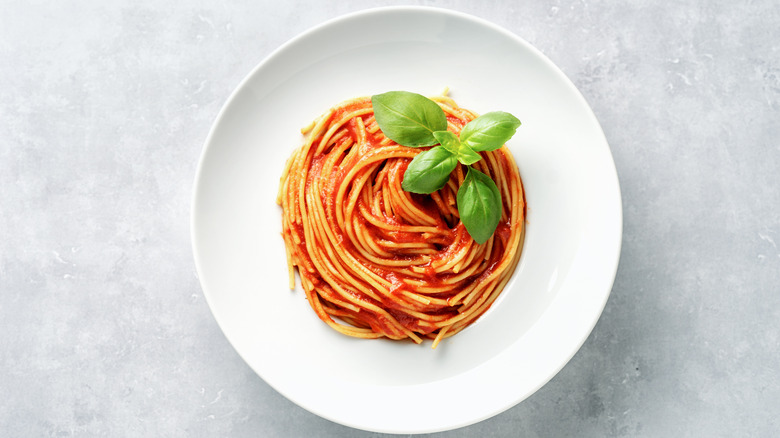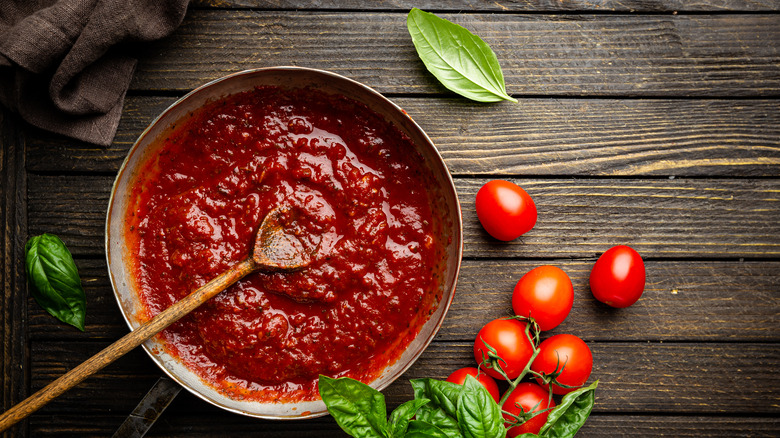This Is The Biggest Marinara Sauce Mistake You're Making
There's one simple dish that's an old standby for us in the kitchen, something we whip up about once a week: tomato sauce. From spicy arrabiata to briny puttanesca to meaty amatriciana, there are seemingly endless variations on tomato sauce, making it easy to serve up plenty of types of pastas, pizzas, and even meat dishes like Sunday gravy.
Overall, the various types of tomato sauce are pretty easy to make; they normally rely on a base of onions and garlic sweated down in olive oil, with the addition of canned or fresh tomatoes and herbs such as fresh basil and dried red pepper flakes. One particularly simple style of tomato sauce — or so we thought — is marinara, a basic combo of fresh tomatoes, olive oil, and fresh basil (via The Spruce Eats). We considered ourselves masters of marinara until recently, when we discovered one mistake we were making almost every single time. Are you making this mistake, too? Read on to find out.
Don't overcook your marinara sauce
Marinara sauce really is dead simple — but that doesn't mean it's impossible to screw up. A straightforward stew of fresh tomatoes, good olive oil, a healthy amount of chopped garlic, and fresh basil, marinara is an infinitely versatile sauce which can be tossed with pasta, spread on pizza, or even spread across a meatball or chicken parm sub (via The Spruce Eats). But here's the thing about marinara: it's meant to be a quick-cooking sauce, not a long-simmered one. The whole appeal of marinara is that it hangs on to its fresh flavors, bringing not only the sweetness of tomatoes to your finished dish, but also their bright acidity. If you cook marinara too long — setting a pot of it on the stove and letting it simmer away as you take the dog for a walk, as we've been known to do — you'll lose all that freshness, as well as some of the texture of the tomatoes (via The Spruce Eats).
So the next time you make marinara, remember: don't overcook it. Instead, cook your marinara for only about 15 minutes from start to finish. One more tip? Try to resist the urge to toss in other aromatics like dried spices or, heaven forbid, the stronger flavors of items such as olives or capers — that will bring you into puttanesca territory (via Allrecipes). We're not ones to call names, but in this case, we've gotta say: Keep it simple, stupid.

